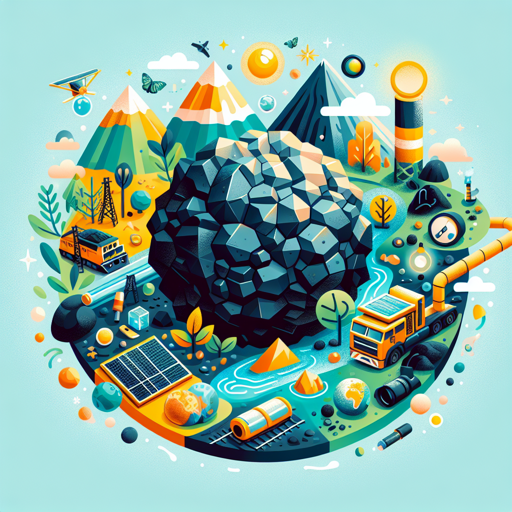The Environmental Impact of Coal Mining
Exploring the environmental challenges and consequences of coal extraction.

The Environmental Impact of Coal Mining
Introduction
Coal is a prevalent source of energy used around the world. It has fueled the Industrial Revolution and continues to support economies today. However, the extraction and use of coal pose significant environmental challenges. This article delves into the environmental impact of coal mining, exploring the ways in which this activity disrupts ecosystems, contributes to air pollution, and poses challenges for sustainable development.
The Footprint of Coal Mining
Coal mining, especially surface mining, involves large-scale land disturbance. Surface mining methods such as strip mining, open-pit mining, and mountaintop removal mining involve removing soil and rock to access coal deposits. This leads to habitat destruction, loss of biodiversity, soil erosion, and alteration of landscapes.
| Mining Method | Description | Environmental Impact |
|---|---|---|
| Strip Mining | Involves removing strips of soil and rock to reveal coal. | Causes extensive land disturbance and deforestation. |
| Open-Pit Mining | Involves digging a large hole to extract coal. | Results in significant habitat loss and soil erosion. |
| Mountaintop Removal | Involves removing the summit of a mountain to access coal. | Leads to drastic landscape alteration and loss of biodiversity. |
Air Pollution and Climate Change
Coal mining releases dust and numerous harmful gases such as methane, carbon dioxide, and nitrogen oxides, contributing to air pollution and global warming. Methane, a potent greenhouse gas, is particularly concerning as it is 25 times more effective at trapping heat in the atmosphere than carbon dioxide.
“Coal does not have to be the future. We have so many alternatives today that can lead us down a path of sustainable energy consumption.” - Dr. James Hansen, Climatologist
Water Pollution
Coal mining also impacts water quality. Mining activities can contaminate water bodies with heavy metals and acidic substances, leading to acid mine drainage. This can kill aquatic life and render water unsuitable for consumption or irrigation.
Health Impacts
Air and water pollution from coal mining can have severe health impacts on communities. Exposure to coal dust can lead to respiratory diseases, while contaminated water can cause a range of health problems, including skin conditions and cancer.
External Reference
To further understand the environmental impact of coal mining, check out this comprehensive report by the Intergovernmental Panel on Climate Change.
Conclusion
Coal mining has significant environmental impacts, from land degradation to air and water pollution. These impacts pose serious threats to biodiversity and human health. As we move towards sustainable development, it’s crucial to reduce our dependence on coal and transition to cleaner energy sources. The future of our planet depends on our actions today.